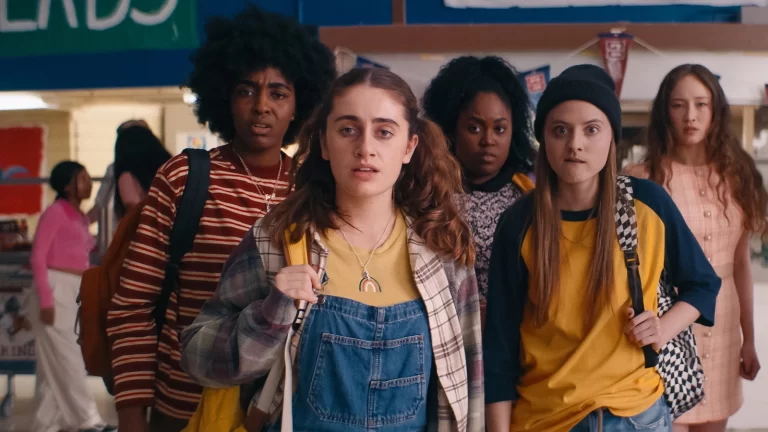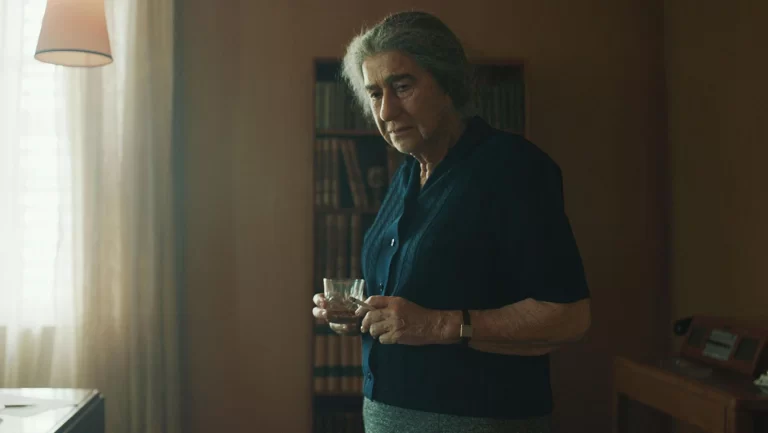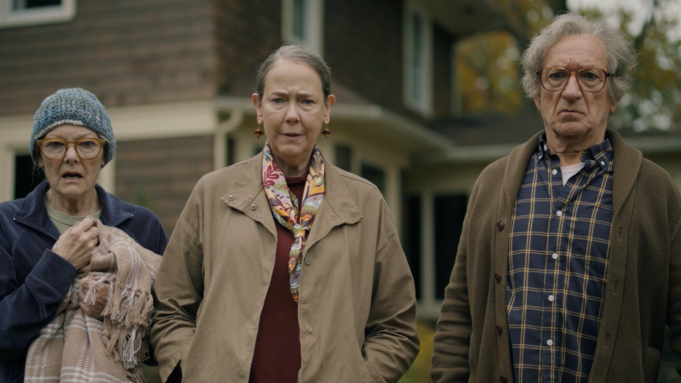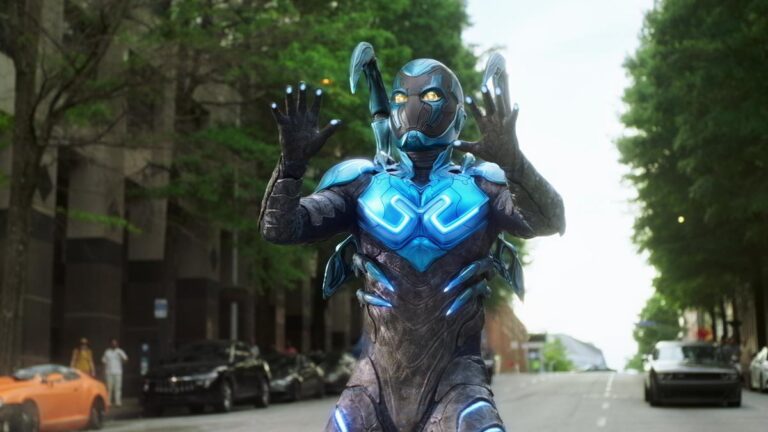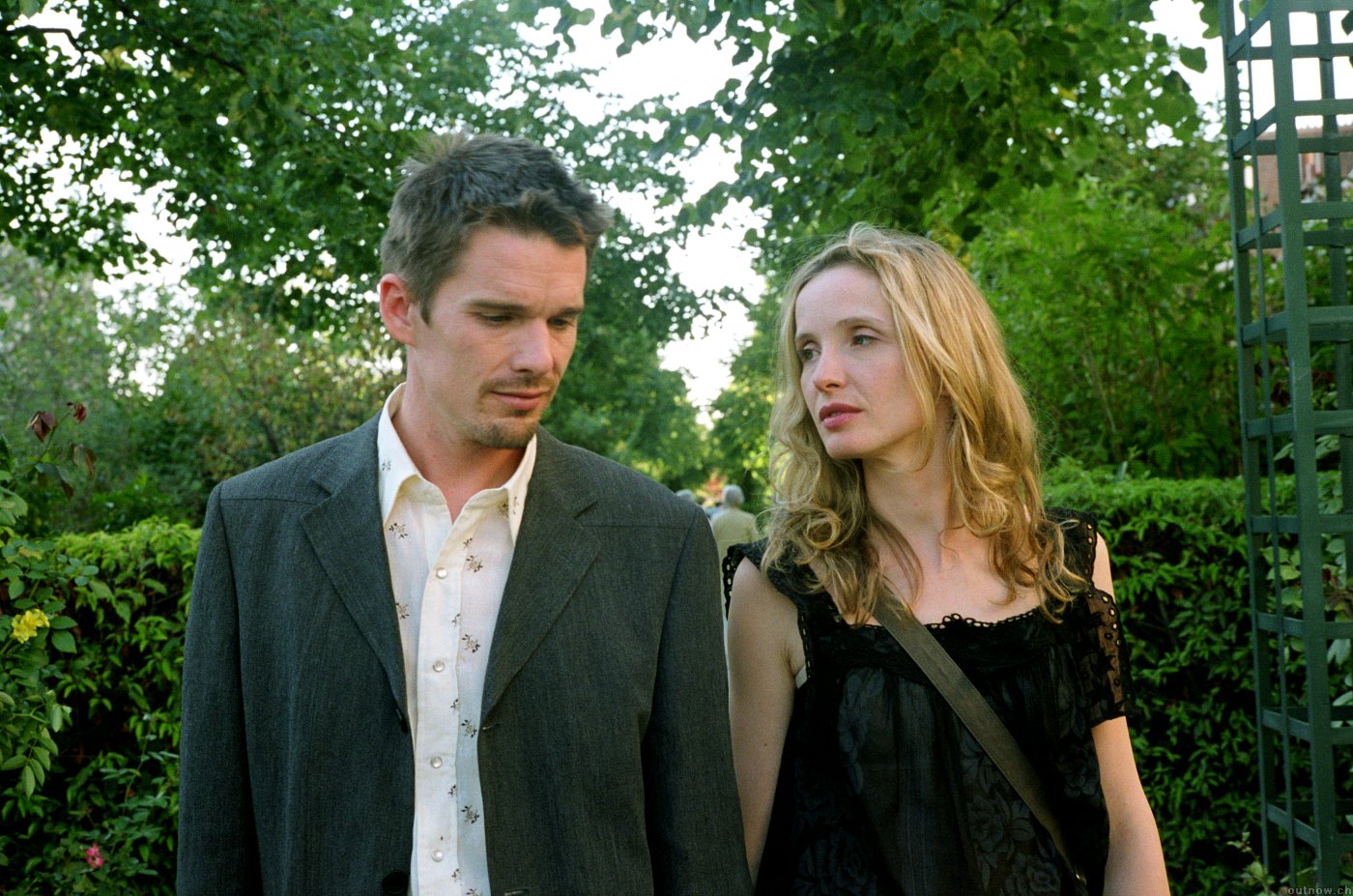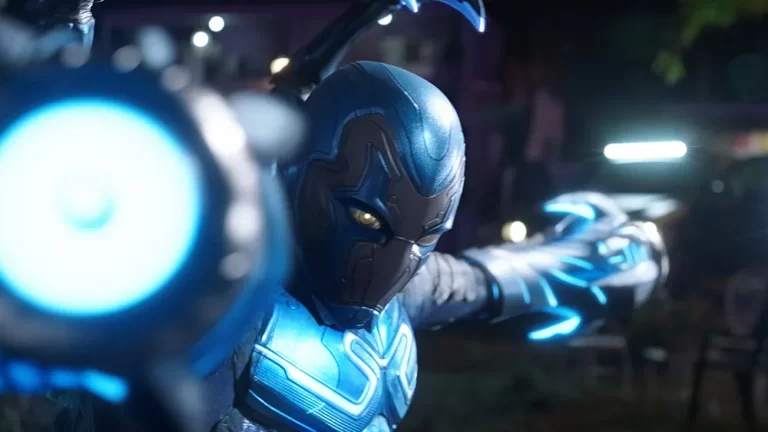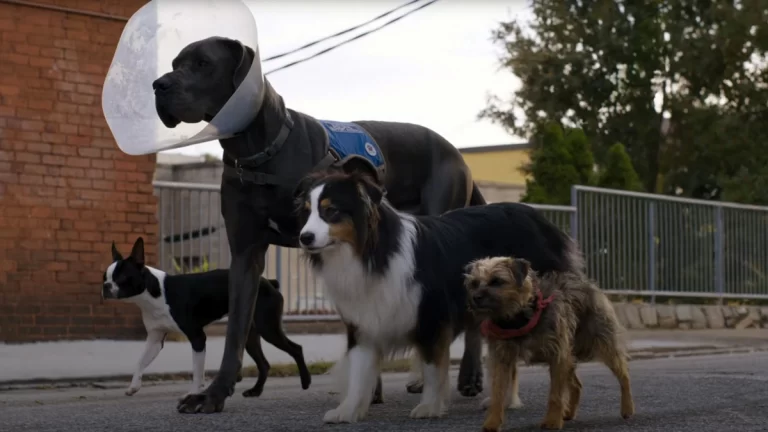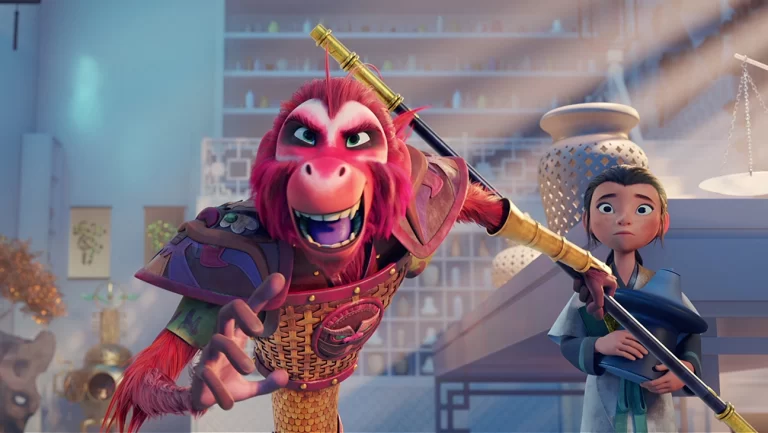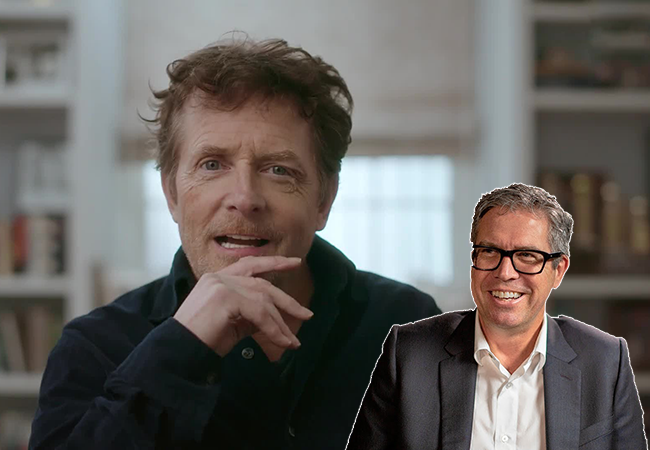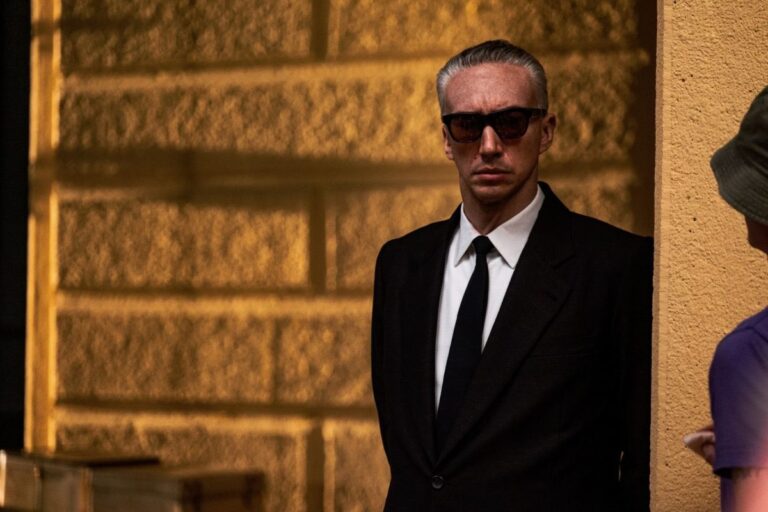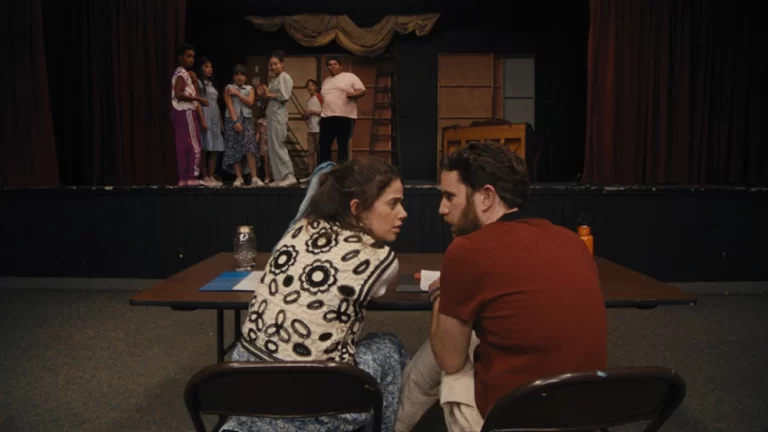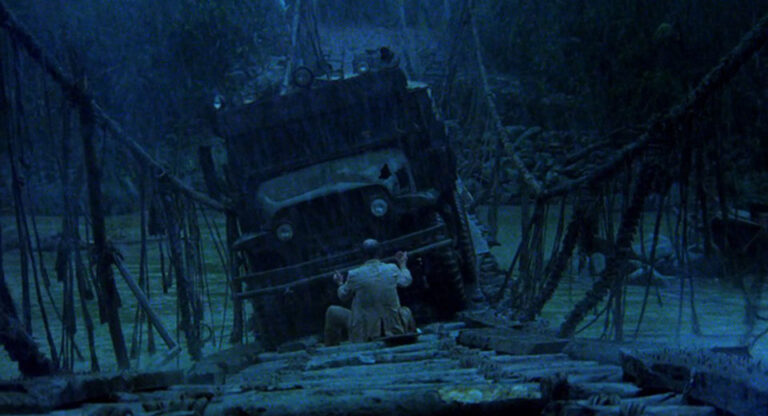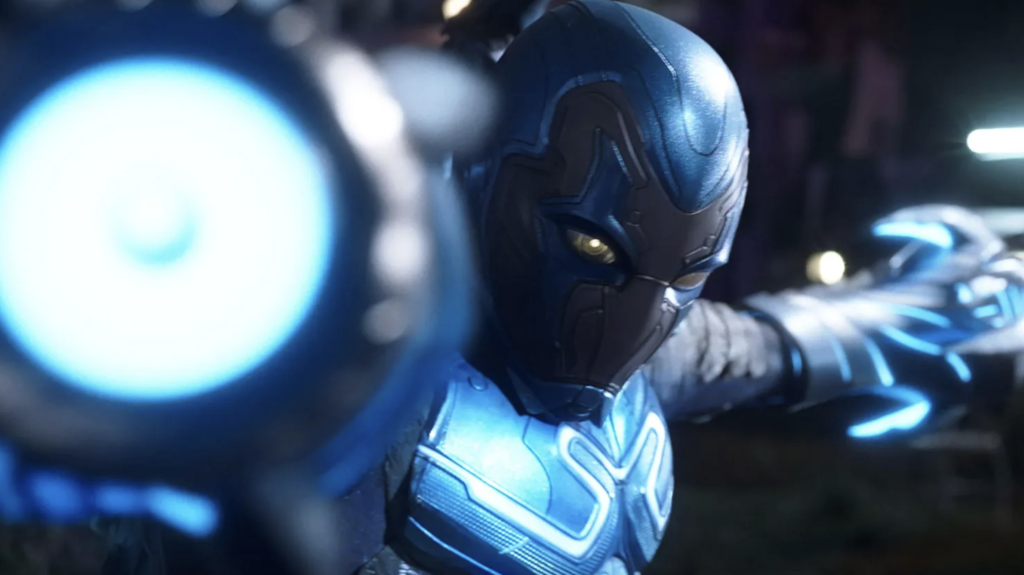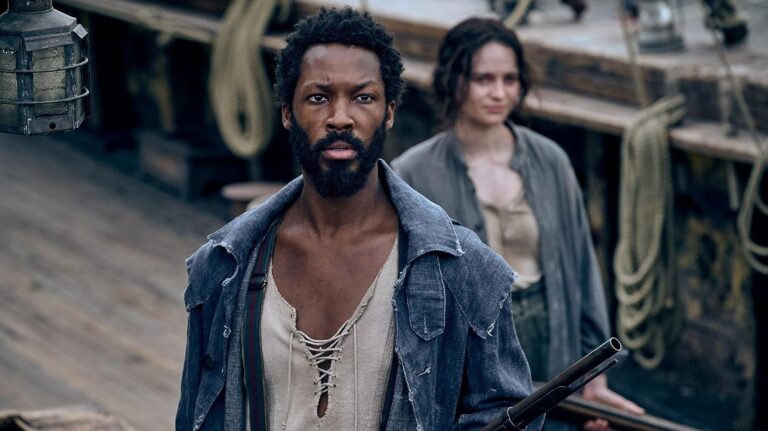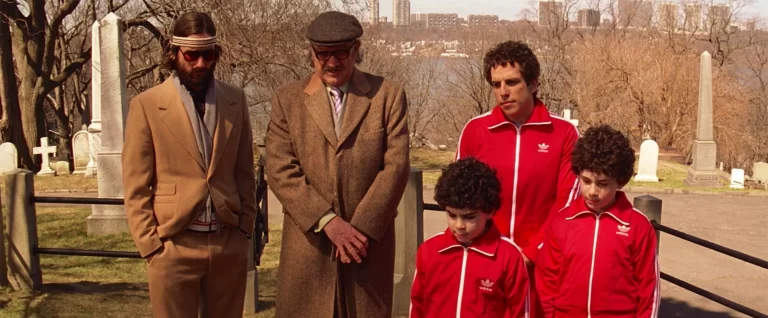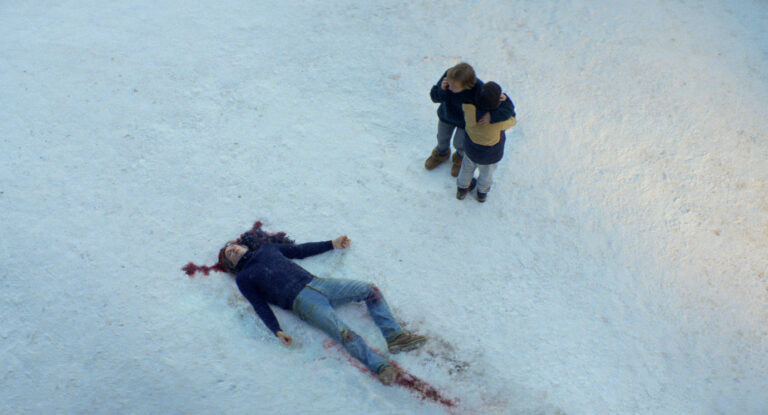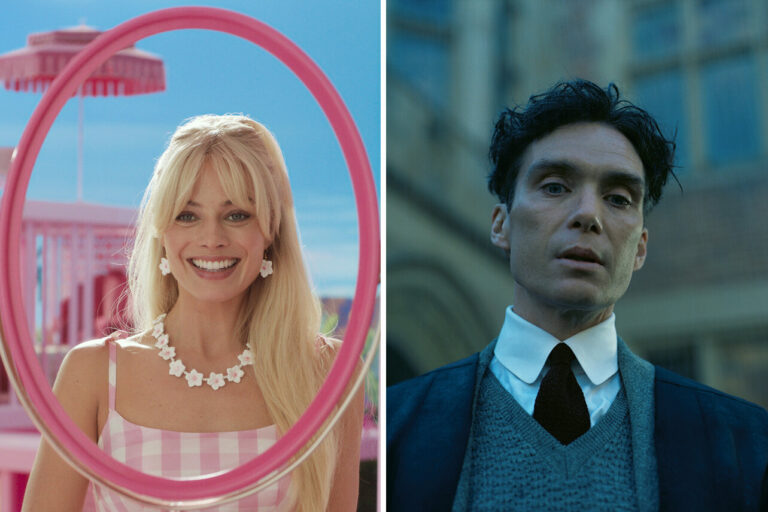Before big ticket failures like Assassin’s Creed or panned thrillers like The Snowman and more time spent on being a race car driver than making movies, Michael Fassbender was an indie darling knocking on Hollywood’s door. Here’s a rundown of Fassbender’s heavy dramas, quirky pieces, and award worthy performances from back when Jonah Hex was his only outlier.
10. Angel
Precocious Romola Garai (The Crimson Petal and the White) dreams of becoming a famous writer and erasing her humble past in director François Ozon’s (Swimming Pool) 2007 sweeping, lovely, fanciful, and tongue in cheek yarn. Our titular turn of the century romantic is smitten with Lothario painter Michael Fassbender, but the intentionally bemusing Victorian over the top and silly, sentimental old time montages give way to crisscrossing love triangles and Great War bitterness. The dreamlike, storybook style humor and pre-War fiction becoming fact decadence accent Angel’s revisionist tawdry. The hedonistic characters don’t take themselves too seriously even as heavier subject matter looms, but the classy ensemble uses each other to keep their secrets as Angel’s tantrums and fantastical lifestyle escalates. Garai is delightfully distasteful as Angel is swept up in her own mystique and unceremoniously pays the price for getting what she wants. Her out of touch Victorian opulence and juicy books lose their luster as changing Edwardian fates find her in true Dickensian fashion. Fassbender captures Angel’s breathtakingly idealized Esme as each looks the other way at their lies. Fassbender’s eyes carry Esme’s unsaid Great War torment and deceptions. His continued emasculation at Angel’s hands goes from perceived paradise to a shattering reality. Some period romance fans may be put off by the mocking tone and the play on genres between period versus fantasy is uneven at times. Fortunately, there is enough grandiose wit and flights of fancy for fans of the cast as this blissful tale turns wonderfully tragic.
9. A Dangerous Method
Director David Cronenberg (A History of Violence) re-teams with Viggo Mortensen (Eastern Promises) as Sigmund Freud to Michael Fassbender’s Carl Jung in this 2011 psychoanalysis opus. The dialogue-based storytelling may be old-fashioned or slow for some audiences while the in-camera cuts perhaps move too fast with years of treatment and correspondence passing from scene to scene in a stream of consciousness in media res. Thankfully, the frank conversations and bantering debates amplify the religion, medicine, and id discourse. Attention to period detail and intimate filming with up close photography showing both doctor and patient during the “Talking Cure” reflect the inward out examinations. Unfortunately, disturbed patient Keira Knightley(Atonement) is a distracting, unsympathetic contortionist as the jealous Sabina conflating doctor/patient affairs, blackmail letters, and psychoanalysis dissertations. Knightley never throws herself into the character with complete abandon, leaving the battle of the sexes ideologies feeling watered down, tame, and lightweight. Sara Gadon (Cosmopolis), however, is pleasantly surprising as the quiet in white lace Emma Jung trapped in a stoic, one-sided marriage. Her one scene with the unstable and intrusive Sabina is awkward perfection, but their maternal submissive meets masculine dominance give and take sadly goes unexplored. Vincent Cassel (Black Swan) also deserved more time as the devil on Jung’s shoulder to Mortenson’s father figure Freud. Their professional resentments and larger psychoanalytical philosophies should have been the film’s focus instead of the pseudo love triangle. Jung’s buttoned up strictness, finite mannerisms, and tight mustache contrast his pleasant psychologist’s demeanor and the passions he must explore. Fassbender embodies both the charming ideas and the conflict upon Jung’s mind over his behind closed doors taboo Edwardian experiences. The glasses come off as Jung makes mistakes, denies, admits, lives. Despite some uneven pacing and performances, Cronenberg’s cerebral panache makes for an intriguing film conversation here.
8. Slow West
Loner Fassbender helps young Kodi Smit-McPhee (The Power of the Dog) find his sweetheart in 1870 Colorado for writer and director John Maclean’s (Pitch Black Heist) visually stunning 2015 full length directorial debut with crisp skylines, impressive camerawork, and a surreal patina. The opening narration establishes the harsh frontier and suspicious, unforgiving mood, but additional, head hopping voiceovers are obvious and unnecessary. Intercut flashbacks and seemingly happy recollections interfere with the present quest and should have come in one early sequence to bookend the superb shootout finale. Likewise, we shouldn’t see the unreliable Rose herself until required, for dream sequences and foreshadowing fears better encapsulate the sardonic tone wrapped in the traditional western motifs. Everything that will happen is alluded to somewhere in the film, layering the character realizations, bounty hunter codes, and cowboy rivalry. Though short at under ninety minutes, the well paced reflection and quiet conversations progress with the forward moving journey and siege action. Smit-McPhee’s young Scottish noble is in over his head with idyllic hopes and a trusting nature that gets the better of him. He thinks this is all one big adventure despite increasing consequences and the need to kill quickly. Some plot holes, however, hamper his improving ingenuity, creating questions on who knows the who what when where and whys. How many people have to end up dead because clueless Jay is in the wrong place at the wrong time causing exactly what he was trying to prevent? Fassbender’s Silas, in contrast, is commanding on horseback – a cigar chomping, ruthless, rugged drifter who abides by no law and demands cash. He sleeps upright, robs when necessary, and counters Jay’s romantic stories with cynical humor. For all his lawless posturing, mercenary motivations, stoic action, and belittling delivery, however; traveling with Jay changes Silas from whiskey killer to fond father figure. Despite a few narrative hiccups, viewers should watch this ironic tale at least twice for the layered winks and genre metaphors.
7. Frank
Struggling songwriter Domhnall Gleeson (Ex Machina) joins the unusual, unpronounceable band Soronprfbs and its eponymous, eccentric singer Michael Fassbender – who wears a giant papier-mâché head. “Chinchilla!” safe words, goofy one-liners, and social media commentary anchor the witty, natural script as our newcomer chronicles the recording of the band’s next album on social media with “#livingthedream” unreliability. Jon asks the questions on our mind: Does Frank have a beard? How does he brush his teeth? Is he disfigured? He’s from Kansas? The askew, self-aware comedic circumstances make it okay to laugh at tender moments, but the band’s internet notoriety leads to insensitive media and jokes about the head. Theremin player Maggie Gyllenhaal (Secretary) pretends she doesn’t care – a tough, bizarrely nurturing figure who knows Soronprfbs doesn’t need to be famous but they do need music to heal. Making music is a religious revival to Frank, but once we see he still wears his “has a certificate” head offstage, we’re hooked by his artistic fragility. We don’t blame Frank for wearing his head because we hide within our own facades, illusions, and phony hashtags to control how we’re perceived. This mask helps Frank express himself and see through other people’s issues even though he doesn’t realize his own brokenness. Fassbender embodies the top heavy physicality and offbeat genius with a different unknown voice from inside the head, and life just might be easier if we too clarified our internal facial expressions as Frank does. This is an excellent character study from director Lenny Abrahamson (Room) exploring the quirky whilst being no less poignant – no matter how you pronounce Soronprfbs.
6. Prometheus
Noomi Rapace (The Girl with the Dragon Tattoo) petitions the Weyland Company to fund an archaeological expedition to the distant planet LV-223, but only Michael Fassbender’s android David is awake for the journey to discover these “Engineers” and the alien origins of humanity in director Ridley Scott’s 2012 return to the Alien universe. The bright science fiction palette and imaginative special effects look simply smashing as the foreboding body horrors escalate with planetary storms and trapped personnel encountering creepy creatures and ancient artifacts. Unfortunately, the creature connections, origin aspirations, and spiritual character motivations that should have been explained by writer Damon Lindelof (Lost) go unrealized thanks to the rushed, disjointed script leaving deleted scenes and supplemental material to fill in the plot holes and inconsistencies saved for the inevitable sequel. Although Rapace is up to snuff as the Oedipal object of David’s intentions, any scary speculative science fiction food for thought descends into obvious contrivances. Conflicts between faith, science, and the reexamination of humanity fall prey to nonsensical actions. Charlize Theron (Monster) is ice queen company representative good fun, but she deserved more, and the quality supporting cast including captain Idris Elba (Luther) and Guy Pearce (L.A. Confidential) as Peter Weyland are squandered. Fortunately, Fassbender’s hyperactive, prepubescent, synthetic sociopath David subtly exceeds his programming in uniquely devoid yet malevolent orchestrations. He continually disobeys any instruction and uses his superior intellect to gain control, outgrowing his human inventors and using Engineer technology to his advantage. Botched Alien connections, fly by night scripting, and behind the scenes flaws aside; Prometheus is nonetheless entertaining for science fiction lovers thanks to the capable cast.
5. X-Men: First Class
Nazi scientist Kevin Bacon (Mystic River) tortures Michael Fassbender’s metal manipulating Erik Lehnsherr while privileged James McAvoy (Split) as Charles Xavier becomes a mutant professor aiding the CIA to avoid nuclear war during the Cuban Missile Crisis in director Matthew Vaughn’s (Layer Cake) vibrant, swinging, Bond-esque 2011 gem. Fedoras, frocks, gadgets, newsreels, and split screens accent the character focused friendships and fractures amid intelligent mutant debates and quiet rage. Compared to today’s comic book movies, the slower pace allows time for attention to detail, tension, and surprises building up to the Professor X and Magneto divide we know is to come. Certainly, the women are underutilized in this misogynistic sixties. The superfluous mutant henchmen and lightweight X-Kids make for an unnecessarily crowded ensemble that should have been recruited for a direct follow up film. Thankfully, McAvoy embodies the zest, compassion, and hope of our prequel Charles. Initially arrogant, Charles’ awakening of Erik’s full power in hopes of mutants living together peacefully with homo sapiens instead comes at a very high price. Frankenstein parallels, Jekyll and Hyde metaphors, and Neanderthal comparisons add layers to the diverging mutant ideologies, and Fassbender excels with an abandon for languages, revenge, standoffs, and tears. He’s the soon to be bad guy justified in everything that he does. His deadly magnetism and ruthlessness combine for a 007 Dalton meets Craig edge, but we know better than to believe Erik will work for the common good with Charles. With stylish mid century elan and on the precipice performances, this is a serious superhero film and one of X-Men‘s finest.
4. Jane Eyre
This 2011 adaptation of Charlotte Bronte’s 1847 tale featuring the titular Mia Wasikowska (Crimson Peak) to Michael Fassbender’s Rochester has divine costumes, emotional scoring, excellent locales, foggy scenery, and flickering period lighting. Candles and firelight invoke an old-fashioned ambiance as well as shadows and gothic mood. Natural camerawork and flashback storytelling build realistic suspense and mystery as our governess trades literary barbs with the brooding master of the manor. Wasikowska’s poise reiterates Jane’s intelligence and self-respect as she grows from pale to radiant and confident in her unusual relationship with Rochester. The Bronte banter opens these kindred souls up beyond their societal barriers, but Jane sticks to her convictions despite Rochester’s intimidating attraction. Fassbender’s Master of Thornfield Hall appears almost as an apparition – striking an alluring balance between lonely menace and unobtainable flirtation. He’s demanding, pesky, and trusts no one but Jane, whose spitfire matches his own tongue in cheek intellect. Unfortunately, the Victorian conventions and secrets in the attic threaten to undo their would be bliss. Despite the reduced time and structural changes, Bronte fans and period piece aficionados will be swept up upon the moors thanks to these atmospheric performances.
3. Shame
The perfect façade of Michael Fassbender’s Brandon Sullivan hides a depraved sex addiction and a visit from his sister Carey Mulligan (Promising Young Woman) upends the out of control internet porn and call girls in director Steve McQueen’s visceral 2011 NC-17 drama. Unusual mixes of conversational dialogue, long silences, or musical interludes accent the alternating intercuts, unbalanced editing, and tight photography reflecting Brandon’s inner spiral. The distorted timeline builds both a conventional plot and nontraditional storytelling yet the script is not that explicit or shocking. This is a quiet film with actions and expressions letting the characters cry out in different ways. Needy Mulligan is full of heart wrenching issues all her own, but Brandon cannot give the help she wants. Brother and sister – scarred and unashamed to be naked in front of each other – come to violent, pseudo-sexual blows because they should be able to heal their brokenness together yet it’s not their fault if they can’t. We feel for Brandon as our off kilter avatar thanks to his sad lifestyle and fear of intimacy. Cartoons and juvenile behavior suggest a previous trauma; Brandon’s apartment is bare and his gray pants/blue shirt/scarf uniform is as devoid as his stare. He never eats, only drinks, drugs, or caffeinates to keep his bottomless sex drive going. He can’t behave normally as the constant craving for an unattainable climax leads to nothingness. Fassbender’s tears encapsulate the man versus man, man versus nature, and man versus himself tragedy. This is a depressing, raw, uncompromising piece addressing our frailty, loathing, and pain.
2. Fish Tank
Writer and director Andrea Arnold (Red Road) wastes no frame as the natural, over the shoulder camera captures the bleak documentary feeling of the Essex council housing where delinquent teen Mia meets her mother’s latest boyfriend Michael Fassbender. Diegetic sound and the square, full screen ratio mirror the dated, boxed in, congested atmosphere as the Peeping Tom audience may not like what we observe. In her debut, Katie Jarvis captures Mia’s youthful rage and underlying softness with raw emotion and realism. Though her moves are outdated and not very good, dancing is Mia’s chosen self expression. The abandoned apartment where she practices is free from the shouting and violence at home. Mia lashes out with overused hollow curse words and plays dress up with her mother’s things – drinking, finding birth control, and mixing youth with adulthood in ways she doesn’t fully understand. When Connor comes along, he gets Mia out of her angry shell, becoming the stable force this family needs. Unfortunately, Mia’s infatuation with Connor blinds us to the budding inappropriateness she fails to comprehend and we’d rather not see. He seems friendly, caring, and sexy because we are in her point of view with increasingly askew slow motion and lucid, dream-like distortions as the line between father figure and intimacy blurs. Such ugly, taking advantage, loss of innocence indiscretions like this happen in the real world all the time, but the clouded juvenile view of Fassbender’s charisma leads to the blinders coming off in escalating surprises and crimes. Some parts of this coming of age tale are very difficult to watch. It’s meant to be uncomfortable, and the voyeuristic viewer comes away with no easy answers.
1. Hunger
After fellow Irish prisoners endure brutal abuses and inhumane treatments at the Maze Prison, Fassbender’s IRA Officer Bobby Sands ends their 1981 blanket and no-wash strike efforts in favor of a hunger strike. Father Liam Cunningham (Game of Thrones) attempts to convince Sands this will be equally unsuccessful, but Sands refuses food and medical treatment for 66 days as his body slowly wastes away in director Steve McQueen’s 2008 debut. Simmering, silent shots establish the bleakness as character backgrounds and stoic guards caught in a difficult position don’t make it easy to discern who is right or wrong. This is not a political movie but rather a story about one person suffering naked humiliations, excrement, orifices, and worse. The realistically dirty, unpleasant look of the film itself is emaciated, pared down and on strike against the glitzy, overdone Hollywood system. There’s precious little dialogue until Cunningham asks Sands why in an excellent, 17 minute unbroken two-shot. It’s natural, serious, sad, and even witty as viewers must pay attention to the smoking, subtle movements, hidden ticks, and vocal inflections to understand what’s really being said. What are Sands’ real motivations for the strike? Fassbender is without dialogue most of his time, letting his sad eyes and onscreen transformation capture the mundane starvation monotony and quiet bodily torment of waiting to die. The haunting imagery and worst of what humanity does to each other herein is not easy to watch yet this is a film you can’t forget.



